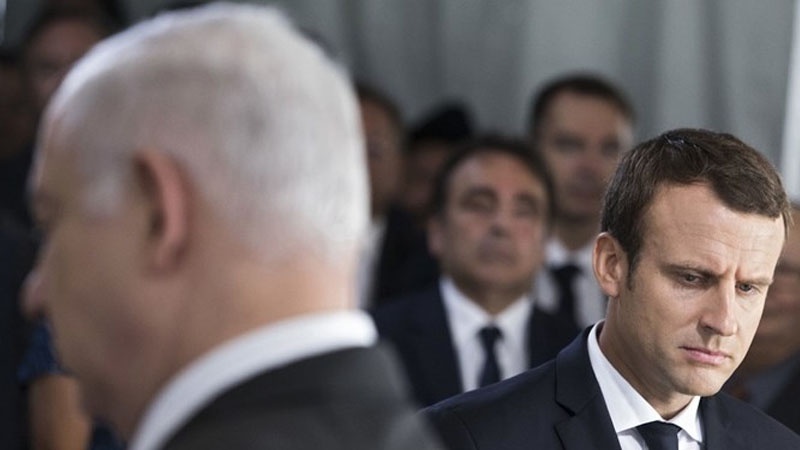AhlulBayt News Agency: American daily New York Times, in an analysis, referring to the repeated remarks of the French President, Emmanuel Macron, about stopping arms shipping to the Israeli regime, evaluated such stances as Paris' intention to turn into a world power.
Arguing that sending of arms to Israel is in contrast with the insistence of countries on ceasefire in Gaza and Lebanon, Emmanuel Macron has recently called for halting arms dispatch to Tel Aviv; hence angering the leaders of the Zionist regime. New York Times wrote in this regard that this is not the first time that Macron presents such a suggestion. Last month at the UN General Assembly, too, he had called for stopping arms sending to Israel, saying that pressure for setting up ceasefire is in contrast with simultaneous delivery of weapons.
NYT adds that the observers are of the opinion that Macron's remarks comply with his personal style which intends to keep the classical ideal of France to turn into an independent international power.
Analysts maintain that Macron's fame basically depends on his bold and, occasionally, disruptive foreign policy. Daviv Khalfa, specializing in West Asian studies and a member of the French think-tank Jean Jaurès, believes that These statements will raise a question about the clarity of French diplomacy on Israel.
Moreover, Karim Emil Bitar, professor of West Asian studies in the French University of Saint Joseph of Beirut, said, "When you are trying to satisfy both parties in foreign policy you will eventually make them distant from yourself."
Rim Momtaz, expert of French foreign policy and a member of the Carnegie Peace Foundation, says, "Lebanon is the place where France can still behave like a superpower although it is no more a superpower."
This expert of political issues reiterated, "Macron is not deluded and he knows that his remarks will have no effect on the American government's support for Israel. Yet, he sends a clear message to the rest of the world with these remarks that France and, maybe Europeans, adopt a different stance from the US."
Meanwhile, French Foreign Minister, Jean-Noël Barrot, has just announced that Israeli security cannot be maintained merely through military force and it will need a diplomatic solution.
/129
Arguing that sending of arms to Israel is in contrast with the insistence of countries on ceasefire in Gaza and Lebanon, Emmanuel Macron has recently called for halting arms dispatch to Tel Aviv; hence angering the leaders of the Zionist regime. New York Times wrote in this regard that this is not the first time that Macron presents such a suggestion. Last month at the UN General Assembly, too, he had called for stopping arms sending to Israel, saying that pressure for setting up ceasefire is in contrast with simultaneous delivery of weapons.
NYT adds that the observers are of the opinion that Macron's remarks comply with his personal style which intends to keep the classical ideal of France to turn into an independent international power.
Analysts maintain that Macron's fame basically depends on his bold and, occasionally, disruptive foreign policy. Daviv Khalfa, specializing in West Asian studies and a member of the French think-tank Jean Jaurès, believes that These statements will raise a question about the clarity of French diplomacy on Israel.
Moreover, Karim Emil Bitar, professor of West Asian studies in the French University of Saint Joseph of Beirut, said, "When you are trying to satisfy both parties in foreign policy you will eventually make them distant from yourself."
Rim Momtaz, expert of French foreign policy and a member of the Carnegie Peace Foundation, says, "Lebanon is the place where France can still behave like a superpower although it is no more a superpower."
This expert of political issues reiterated, "Macron is not deluded and he knows that his remarks will have no effect on the American government's support for Israel. Yet, he sends a clear message to the rest of the world with these remarks that France and, maybe Europeans, adopt a different stance from the US."
Meanwhile, French Foreign Minister, Jean-Noël Barrot, has just announced that Israeli security cannot be maintained merely through military force and it will need a diplomatic solution.
/129

